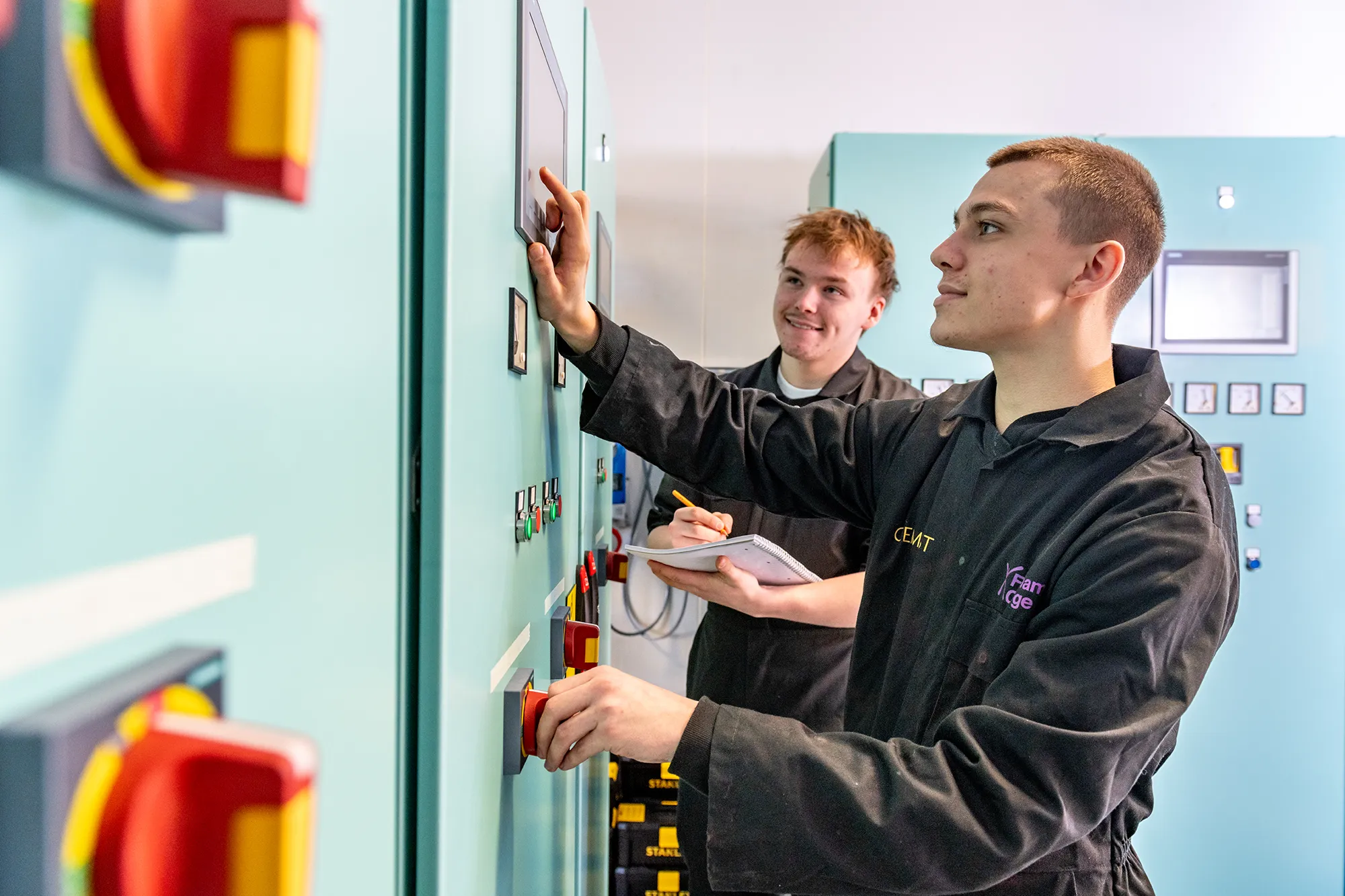
The Higher National Certificate (HNC) in Marine Engineering is intended to impart theoretical knowledge and practical skill to students on engineering design practice, planning, management, operation and maintenance of Marine Engineering systems and equipment suitable for a technician. The programme develops knowledge and skills in areas such as propulsion, auxiliary systems, stability and structure of merchant ships, electro-technology, mechanical principles and thermodynamics. It is equivalent to the first year of study on an undergraduate degree at university.
You will study the following modules:
Engineering Mathematics
Mathematical analytical skills are critical to your future career as an Engineer and this module will enable you to acquire a deeper understanding of how these skills will be applied in a range of engineering applications. We will support you in acquiring competence and confidence in carrying out mathematical calculations applied to an Engineering context.
Work Based Project
Engineering is the process of applying scientific theory to real-world problems. This module is designed to provide you with the opportunity to do this by conducting a self-managed work-based project. The project should reflect theory and practice drawn from the options being undertaken by you and should also reflect your particular interests, along with those of an employer if you are sponsored. The completed project should reflect your ability to plan, execute and present the findings from an endeavour of your own choosing.
Plant and Process Maintenance
This unit introduces students to the importance of equipment maintenance programmes, the benefits that well-maintained equipment brings to an organisation and the risk factors it faces if maintenance programmes and processes are not considered or implemented. Topics include statutory regulations, organisational safety requirements, maintenance strategies, safe working and maintenance techniques.
Marine Auxiliary Systems
You will study a wide range os ship auxiliary systems including; air conditioning and refrigeration, sewage, freshwater production and distribution, steering gear, auxiliary steam, compressed air, pollution prevention. pumping , fire detection and fixed firefighting and the electrical generation and distribution system. This unit also covers maintenance procedures for marine auxiliary plant.
Marine Electrical Systems and Fault Finding
Understanding modern ship-board electronic and electrical systems, their operating principles and safe practices are essential to implement fault finding for electrical/electronic systems, in a safe but efficient manner. Topics covered will include generation, operation and application of 3 phase and single phase AC generators and distribution; construction of DC motors and applications; battery systems and DC circuits including renewables; understanding fault finding methods and techniques to carry out safe rectification across a variety of marine systems.
Mechanical Principles
You will be introduced to the fundamental principles used by engineers to design vehicles, machines and buildings, including ships and other marine structures. We will support you in acquiring competence and confidence in analysing the effect of forces on the movement and performance of machines and structures and assess the changes of energy involved. You will learn how to conduct tests and experiments to confirm the results of your analysis.

This course is endorsed by the South Coast Institute of Technology and represents a pathway to further progression towards higher level qualifications.
The South Coast Institute of Technology is a collaboration of five further education colleges and two universities. We work with well known employers to deliver industry-led courses which fill skills gaps and support the economic growth of the South Coast. You can read more about the South Coast Institute of Technology by clicking the button below. South Coast IoT
You will need at least 72 UCAS points from a Level 3 qualification such as a National Diploma or Certificate in a related engineering subject or related A Level or T Level subjects, and/or equivalent qualifications and experience. GCSE Maths at grade 4/C or above is also required.
Upon successful completion of the Level 4 HNC, you can progress on to a Level 5 Higher National Diploma (HND) in Marine Engineering and from there, to university to top-up to a full Degree; the course has been designed to facilitate smooth progression into further study at Southampton Solent University. Alternatively, this qualification will enable you to develop your career within your existing workplace or through a Higher Apprenticeship.
Course ID
H4005-2425-F-Y1
Start Date
10/09/2024
End Date
29/05/2026
Start Time
09:00
End Time
17:00
Day of Week
Tuesday
Location
CEMAST
Total Fees
£6,000
College is not just about your course – it’s an opportunity to have fun, meet new people and explore your interests! You can socialise with friends in the café and comfy seating areas, join a club or sports team or attend exciting events around the college. Many of our enrichment opportunities are also great on your CV or UCAS application to demonstrate your commitment and enthusiasm outside of your studies.
Your time at college can also be affected by life or health difficulties, and it’s okay to need support. Our specialist teams are here every day to listen and give advice, whether it’s about career planning, financial support, mental health, or something else. And if you have a long-term support need or medical condition, we’ll work with you on personalised learning support to help you achieve your full potential.